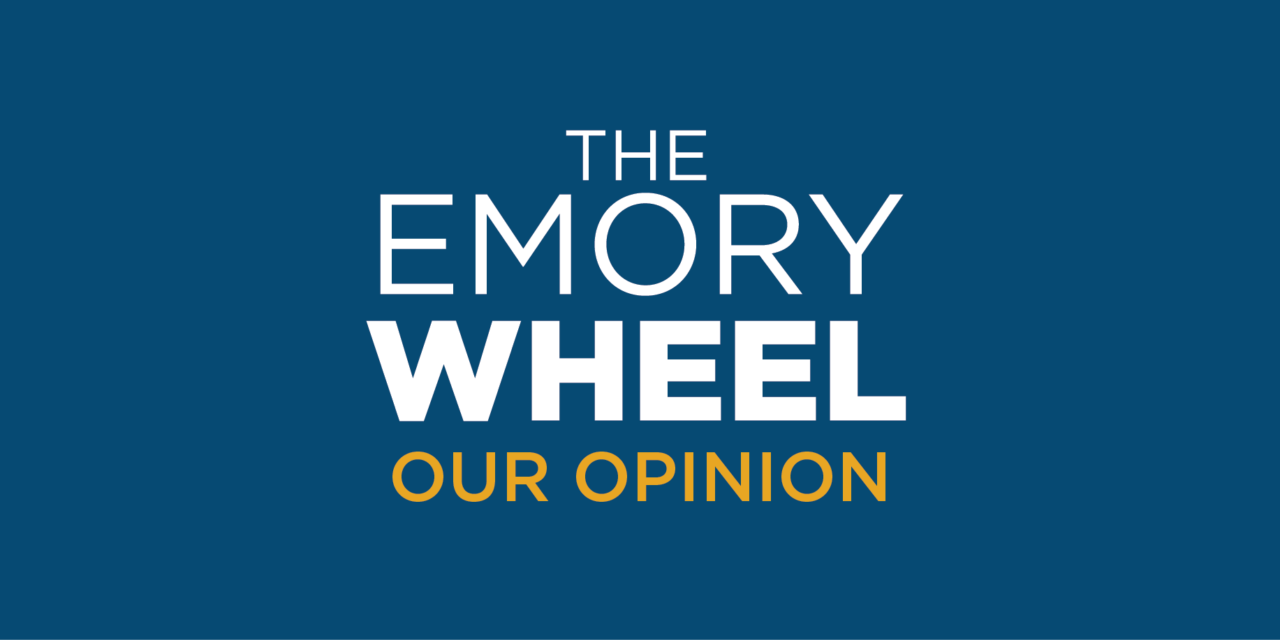
Almost 75 percent of college student respondents in a 2011 National Alliance on Mental Illness (NAMI) study of students diagnosed with mental health issues said they experienced a mental health crisis while in school. Yet the stigma surrounding mental health issues is one of the biggest barriers to accessing mental health care.
Emory offers a vast number of resources, including the Emory Counseling Center, the Student Helpline, which can be reached at 404-727-4357 and is active seven days a week from 8:30 p.m. to 1:00 a.m., and websites on the Counseling and Psychological Services (CAPS) page, such as “Emory Cares 4 U,” which lists numerous resources to learn more about mental illnesses as well as necessary phone numbers to utilize in times of immediate crisis.
Despite the availability of these resources, many students with mental illnesses are still reluctant to seek help. We believe that this is due in part to the discourse surrounding mental issues – calling our friends “insane” for doing something abnormal, or joking about suicide – as well as the lack of conversation surrounding mental illnesses on campus relative to the amount of student experiencing these illness.
We recognize and applaud the work of student groups such as Active Minds, the Emory Helpline and the Rollins School of Public Health’s Emory Mental Health Initiative (EMHI) that aim to facilitate this conversation, and we also encourage the student body to collectively take part. Campaigns such as the National Alliance on Mental Illness’ (NAMI) #IWillListen, in which people promise to lend an ear to anyone who needs it, can help create more open dialogue.
We also encourage students to be more cognizant of the language they use in daily conversation, taking into account that the casual, perhaps thoughtless use of phrases such as “I’m going to kill myself” or “You’re so bipolar” can undermine and trivialize the struggles of those experiencing mental illnesses.
We at the Wheel would also like to encourage the University to continue making a greater commitment to support those with mental illnesses. As the prices of pharmaceuticals like anti-depressants rise, we recognize that more students may seek help from Emory Counseling Services, much of which is funded through the Mental Health and Counseling Fee attached to the Student Activity Fee (SAF).
While we understand the need to balance funding for multiple purposes, we encourage the University to re-evaluate the way in which this money is allocated to ensure that the money appropriated to mental health programs is being spent in the most efficient manner, especially regarding the responsiveness and efficacy of its counseling services. The University also plays an important role in creating a campus culture that fosters broader engagement on issues of mental health and actively promotes treatment and care.
For example, to make an initial appointment with Counseling and Psychological Services, a student has to call or make an appointment in-person with the Counseling Center rather than being able to use the online Patient Portal. This could potentially deter students who are already hesitant to attend counseling services for the first time from seeking important treatment.
Additionally, students may not be able to see a certain therapist for an extended amount of time due to insurance constraints. We urge the Counseling Center to inform students of these restrictions prior to seeking treatment in order to allow potential clients to make an informed decision. We hope that students are able to connect with the therapists at the Counseling Center with the amount of time allotted.
Furthermore, we hope the University is looking to identify any areas for improvement within the Counseling Center, which holds a profound importance on a college campus, where students may be dealing with mental health conditions.
As we move forward, we hope that the issue of mental illnesses continues to receive more attention from both the University and the entire student body, so we can collectively better serve students who are experiencing mental disabilities or who may feel stigmatized by their mental illnesses.
Mental illnesses can impact anyone at anytime and should be treated with the respect and seriousness that they deserve.
The above staff editorial represents the majority opinion of the Wheel‘s editorial board.
The Emory Wheel was founded in 1919 and is currently the only independent, student-run newspaper of Emory University. The Wheel publishes weekly on Wednesdays during the academic year, except during University holidays and scheduled publication intermissions.
The Wheel is financially and editorially independent from the University. All of its content is generated by the Wheel’s more than 100 student staff members and contributing writers, and its printing costs are covered by profits from self-generated advertising sales.




